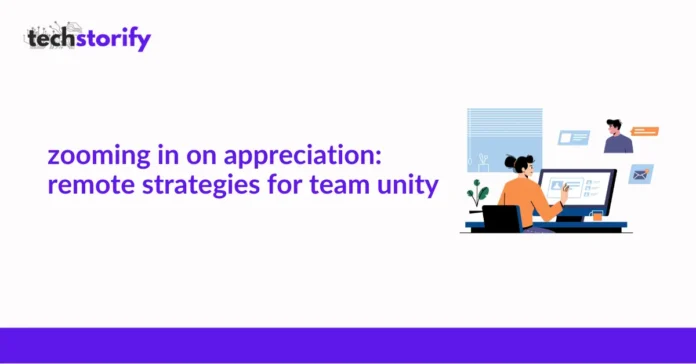In an increasingly digital world, remote work has become a norm rather than an exception. However, fostering a sense of unity and appreciation in virtual teams presents unique challenges.
It’s easy for remote employees to feel overlooked or disconnected from the rest of the team. This underscores the need for purposeful and effective strategies to recognize and appreciate the contributions of the remote workforce.
This document aims to explore various strategies that can be employed to ensure that remote employees feel valued and integral to the team, thus promoting cohesion and productivity.
Contents
Understanding the Importance of Recognition in Remote Teams
Recognition plays a crucial role in reinforcing the sense of belonging to a remote team. When employees’ efforts are noticed and acknowledged, it can boost their morale, enhance engagement, and increase productivity.
Recognition becomes a powerful tool for validating the employees’ hard work and showing them that their contributions are valued, no matter where they are. It also fosters a positive work culture, enhances job satisfaction, and can lead to a lower turnover rate. In remote teams, where personal interaction is limited, recognition can help to bridge the gap and create a sense of unity, making each team member feel connected and appreciated.
Challenges in Recognizing Remote Employees
Recognizing the efforts of remote employees proves challenging due to several reasons.
First and foremost, the lack of a shared physical workspace makes it harder to observe and appreciate contributions in real-time. Managers may struggle to gauge an employee’s performance accurately, as most tasks are accomplished behind the scenes.
Secondly, communication barriers can also pose a challenge. Unlike in a traditional office setting, it’s not easy to have impromptu catch-ups or water cooler chats that often lead to spontaneous recognition.
Lastly, time zone differences can also complicate the recognition process. If not handled well, employees in less conventional time zones may feel neglected or undervalued.
Hence, it’s crucial to devise strategies specifically tailored to overcome these challenges to ensure all team members feel valued and appreciated.
Strategies for Recognizing Remote Employees
One of the most effective strategies is to conduct regular virtual check-ins and meetings. These gatherings provide an opportunity to acknowledge the efforts of team members and offer praise in a public setting. Regular feedback sessions also help employees understand their strengths and areas for improvement.
Employee recognition software can be another powerful tool for appreciating remote employees. These platforms provide a dedicated space for colleagues to recognize each other’s contributions and celebrate successes. From peer-to-peer recognition to organization-wide announcements, these platforms can create a culture of appreciation that extends beyond geographical boundaries.
Personalized appreciation messages can also make a significant impact. Having a superior acknowledge an employee’s hard work through a personalized note can enhance the employee’s sense of achievement and boost their morale. It shows the employee that their work is being noticed and appreciated, even in a remote setting.
Lastly, virtual team-building activities can foster a sense of unity and appreciation among remote teams. These activities can range from online games to virtual happy hours, promoting interaction and camaraderie among team members. They also present an opportunity for managers to acknowledge team efforts and celebrate collective achievements.
The Role of Leaders in Recognizing Remote Employees
Leaders hold a crucial role in recognizing remote employees. Their actions and behaviors set the tone for the entire team. An effective leader understands the importance of appreciating and acknowledging the contributions of their remote team members. Recognizing employees’ efforts isn’t merely a gesture of politeness, but it’s a leadership strategy that builds trust, fosters motivation, and cultivates a positive work culture.
Leaders can lead by example by incorporating appreciation into daily communication. Regularly sharing words of encouragement, expressing gratitude for a job well done, or giving a shout-out during virtual meetings can go a long way in creating an inclusive and appreciative remote work environment.
Moreover, leaders can also institutionalize appreciation by implementing systematic recognition programs. This could range from spotlighting top performers in team meetings, hosting virtual award ceremonies, or providing professional development opportunities as a form of recognition. Regular, consistent, and meaningful recognition from leaders encourages a culture of appreciation, strengthening team unity and boosting morale in the remote work setting.
Final Thoughts
In conclusion, fostering a sense of unity and appreciation in remote teams is both a challenge and an opportunity. While the virtual nature of remote work poses some obstacles, strategic measures can ensure that every team member feels recognized and valued.
Regular virtual check-ins, personalized appreciation messages, employee recognition software, virtual team-building activities, and strong, appreciation-modeled leadership can bridge the distance and create an inclusive, positive work environment.
By cultivating a culture of recognition, we can promote not only individual satisfaction and productivity but also overall team cohesion and collaboration, fortifying the team’s unity in an increasingly digital work landscape.













